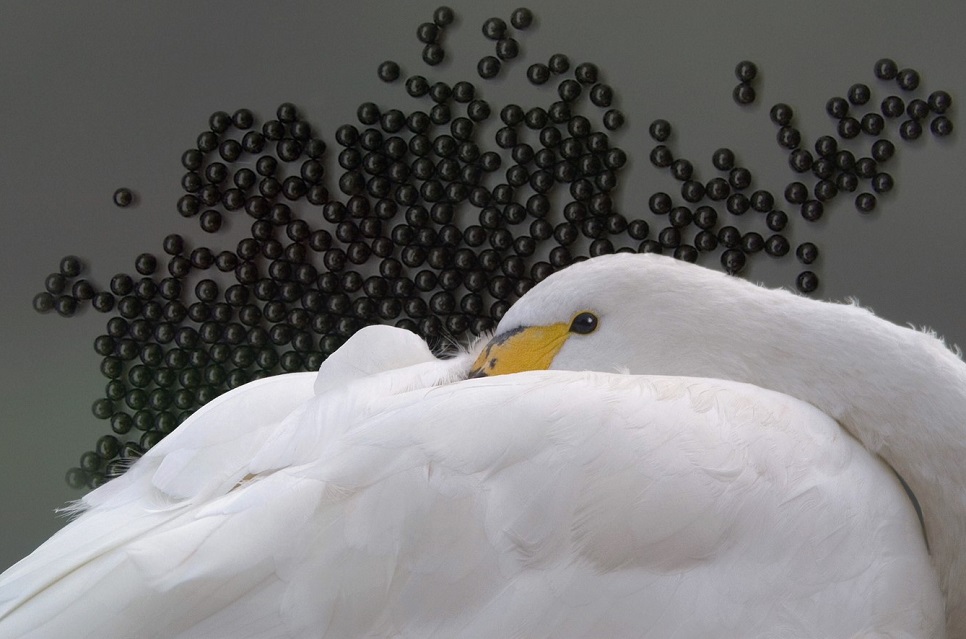Children inspired by Scott legacy
Did you watch BBC1’s One Show and see WWT Vice President Kate Humble travelling to Antarctica to post the top 100 letters from our Scott 100 Letters competition? Here’s a chance to watch it again.
The winning letter, written by Brent Astley Richards, 66, urges children to switch off their computers and go and see the “immense variety” of wildlife in Britain. Tune in on Friday to watch his local primary school receive the letter and head down to the woods to have fun and get up close to some creepy crawlies!
The letter-writing competition marks the centenary of Captain Scott’s expedition to the South Pole. Knowing he was about to die, Scott wrote to his wife and asked her to make their young son interested in nature.
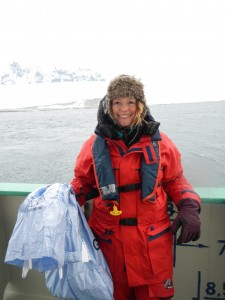 Scott’s letter inspired his son Peter (Sir Peter Scott) to found WWT and to become a worldwide conservation pioneer and broadcaster who mentored Sir David Attenborough. 100 years later, the competition aims to use a simple letter to repeat that inspiration.
Scott’s letter inspired his son Peter (Sir Peter Scott) to found WWT and to become a worldwide conservation pioneer and broadcaster who mentored Sir David Attenborough. 100 years later, the competition aims to use a simple letter to repeat that inspiration.
Mr Astley Richards’ letter to the children of Britain says: “Did you know we have the fastest creature on earth here in the UK and it can be seen in most cities? It’s the peregrine falcon and it can reach speeds of over 180mph. We have snakes, lizards, a moth that looks like a humming bird, a bird that walks along the bottom of rivers and one that flies nonstop for more than three years, all things that you could see. All you have to do is switch off your computer and go for a walk”.
600 of you wrote an inspiring letter to inspire someone to do something amazing. You wrote to family members, celebrities, politicians and business leaders.
The letters were judged by a panel of celebrity wildlife broadcasters including Kate Humble, Gordon Buchanan, Bill Oddie, Miranda Krestovnikoff, Chris Packham, Michaela Strachan and David Lindo.
Kate Humble took the top 100 letters, including Mr Astley Richards’, to Antarctica where she posted them from the most southerly post office in the world. Each letter included an Antarctica post stamp and a covering letter personally signed by Captain Scott’s grandson, Falcon. Each letter has travelled around 20,000 miles. So between them the 100 letters have travelled around 2 million miles – that’s the same as four return trips to the moon!
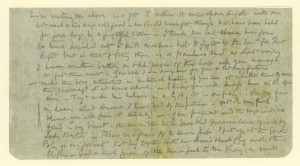
TV broadcaster and Scott 100 Letters judge Gordon Buchanan says:
“We have to inspire our youngsters to get close to nature, not just for their own benefit but also so that they will protect our environment in the future.
“All the judges found it was really difficult, but also a real privilege, to pick a winner from more than 600 inspiring entries. We felt Mr Astley Richards’ letter simply and clearly captured just how amazing Britain’s natural environment is and would give children the inspiration to go out and experience our national riches rather than miss out.”
“It’s mindboggling how Captain Scott’s letter, written thousands of miles away and a hundred years ago, has resulted all these years later in WWT saving endangered bird species around the world and running wetland visitor centres around the UK which get children close to nature. Just imagine what Brent Astley Richards’ letter might accomplish a hundred years from now”?
Alongside the competition, WWT’s Inspiring Generations Appeal has raised more than £70,000 to enable disadvantaged schoolchildren to visit their centres and get close to nature, as its founder Sir Peter Scott intended.
Now comes the really interesting part. We don’t know how many letters will reach their destination. We don’t know how many will get a reply, or what those replies will say. Which makes it just a little more exciting. Those letters are now reaching their destinations, and the first replies are in.
So here’s the winning letter – followed by some of the replies received so far.
The winning letter
Dear Children of Great Britain
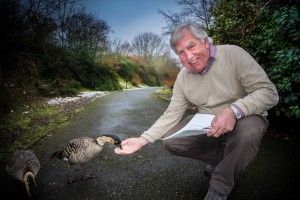
You alone hold our future and indeed the future of all living things in your hands. Past generations have made a real mess of our planet but at long last we are all beginning to learn that we can and must make a difference. Over the last fifty years or so we have made great headway against the seemingly insurmountable problems of indifference, ignorance, political necessity and corporate greed but there is much still to be done. When I was a boy in the 1950’s most of our rivers were so polluted they held little if any wildlife, now most are clean and healthy and once again full of fish, we need to keep them that way. On the other hand in those days I could often hear the wonderful song of the Nightingale or wander through hay meadows full of wild flowers and butterflies, sadly much of that environment has since disappeared. We need to save as much as we can of what we have left and recreate those environments wherever possible.
Many of you love your computers so to start with, look up wild birds, wild flowers, insects and wild animals and see what an immense variety surround us. Did you know for example that we have the fastest creature on earth here in the UK and it can be seen in most cities. It’s the Peregrine Falcon and it can reach speeds of over 180mph. We have snakes, lizards, bats, a moth that looks like a Humming Bird, a bird that walks along the bottom of rivers and one that flies nonstop for more that three years, all things that you could see. All you have to do is switch off your computer and go for a walk. But when you go for the walk take a long hard look at your environment. If you see a wild flower take a good look at it but don’t damage it, look at its shape its colour, the leaves and where it grows. Look at the birds, their colour, the shape of their beaks, did you know that the shape of the beak will often tell you what they eat. Fat beaks are usually for breaking into seeds, thin for eating insects, long for poking into tree bark or down into mud. When you finish the walk go home and write down the best bits and think what you could do to help our wild creatures.
The only creature on this planet capable of destroying it, is man. We all need to be aware that we survive because of the natural balance of nature, a balance we are in great danger of upsetting completely. You all hold the future of this planet in your hands and only you can determine its ultimate fate.
From: Brent Astley Richards
Replies coming in:
“The Queen has asked me to thank you for your letter of 6th December which arrived in this office on 4th April. Her Majesty was interested to know about the Scott 100 Letters project and thought it kind of you to enclose one of the winning letters by Lucia Williamson Waggoner who expressed her concern over the destruction of the world’s rainforests and the importance of recycling our paper.”
The Queen’s Senior Correspondence Officer replies to Lucia Williamson Waggoner, via Falcon Scott.
"Captain Scott’s letter 100 years ago had a huge impact on our future and no doubt all your letters will too. The Prince was very touched that you chose to write to him as he also loves nature and the outdoors."
Prince Harry’s office replies to Melissa Adams, aged 9.
“Bear was very touched by the letter and always so happy to see that youth are getting out there into the wild and living life to the best they can.”
Bear Grylls’ office replies to Sophie Baldwin
“Never stop caring – we and the earth need more people like you!”
Greenpeace replies to Lucas, aged 8, Park Walk Primary School
“The next climate summit will be held this November in Poland. I can assure you that at this conference, too, the German Government will push hard for effective agreements to protect the climate.”
German Chancellor Dr Angela Merkel’s response to Michael Wright
“My granny’s letter to me was most inspiring and my idea is this – At school we have a general school council and a sports council and I think it would be a great idea to have a wildlife and conservation council as well so more pupils can get involved.”
Maya Densley takes the initiative after receiving a letter from her granny.
“I know there is always more to be done and I hope that you will continue to be a champion for wildlife and hold me and future Mayors to account.”
London Mayor Boris Johnson replies to John Shepherd
“I was amazed and inspired to receive the letter than Lynn had sent me all the way from the Antarctic. I thought of how diverse, special and beautiful wildlife is and how important to the Earth it is to keep them all safe for if one creature dies out in the food chain, lots more will follow. The world is a very delicate place and must be protected at all costs.”
Jack Spruce’s reaction to receiving a letter from Lynn Fomison which said “believe you can do this”.
“I agree that children in Wales would benefit greatly from experiencing the great outdoors, not just in terms of keeping fit and healthy but to develop skills that perhaps they would not learn in the classroom and to raise awareness of their local environment and history.”
Wales First Minister Rt Hon Carwyn Jones replies to Michael Ellis
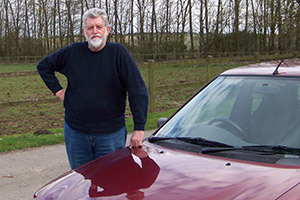 “He would like to thank everyone at WWT for a wonderful idea and the great news is – he is giving up the car!”
“He would like to thank everyone at WWT for a wonderful idea and the great news is – he is giving up the car!”
Rebecca Licence’s letter to her dad, John Licence, pays off!
“I would like to congratulate Ms Lewis on her winning entry in the writing competition, and I appreciate the valuable points she has raised in her letter. Pollinators, including bees, are essential to the health of our natural environment and to the prosperity of our farming industry.”
Environment minister Lord de Mauley replies to Kate Lewis
“I would like to reassure Nadia that we do think it is important that children learn about nature and the environment, though. That is why, in the proposed revised national curriculum, children will have the opportunity to go on fieldwork trips for geography and science. “
Education minister Edward Timpson replies to Nadia Peters, aged 8, Ashton Gate Primary School
“It is important for J K Rowling’s work to remain a product of her imagination. We wish you success with your own creative ideas and success with working for such a worthy cause.”
J K Rowling’s literary agent replies to Mia Stevens, St Stephens Primary School
